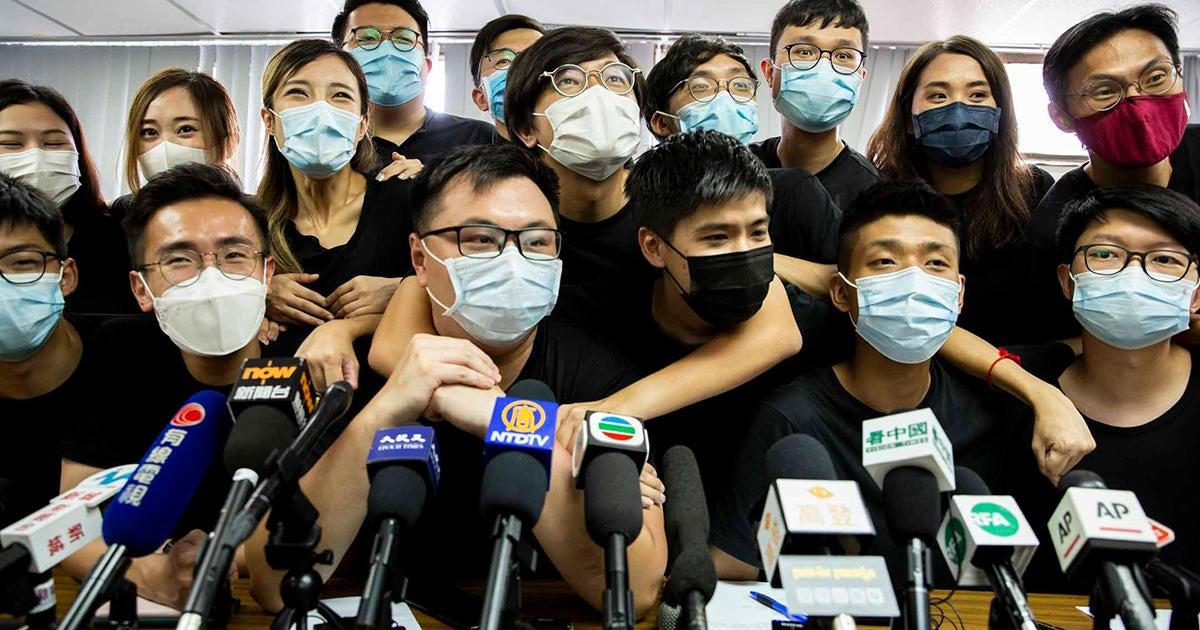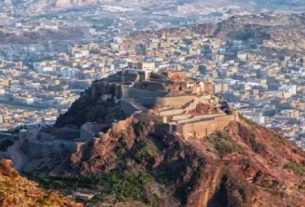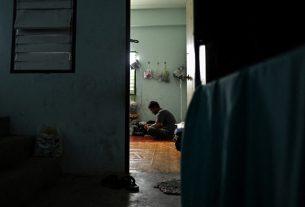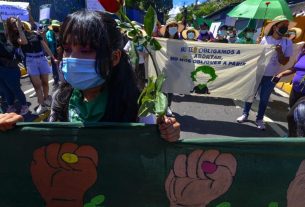(New York) – The Hong Kong government should immediately quash a court’s groundless national security law convictions of prominent pro-democracy activists, Human Rights Watch said today.
On May 30, 2024, three judges handpicked by the Beijing-controlled Hong Kong chief executive convicted 14 activists and former elected lawmakers under the draconian National Security Law. Two were acquitted. Earlier, 31 other defendants had pleaded guilty in hopes of more lenient sentencing. The court will announce sentences, which could amount to life in prison, at a future date.
“Hong Kong’s mass show trial lays bare Beijing’s utter contempt for fundamental freedoms and democratic political processes,” said Maya Wang, acting China director at Human Rights Watch. “The Hong Kong government needs to quash the convictions of these activists and fulfill its legal obligations to protect the rights of the Hong Kong people, including their right to freely elect their government.”
In Hong Kong’s largest national security case, the authorities charged the 47 democracy activists across several generations with “conspiracy to commit subversion” under article 22 of the National Security Law. Those accused included former lawmakers, protest leaders, labor organizers, and academics ranging in age from 26 to 68. Many have been in pretrial detention since their arrests more than three years ago, in January 2021.
The defendants helped organize or ran as candidates in a July 2020 informal public opinion poll to select pro-democracy candidates for a legislative election, then scheduled for September 2020. They sought to win more than half of the legislative seats, with a view toward pressing the Beijing and Hong Kong governments to respond to popular protest demands and give universal suffrage to Hong Kong people, as long promised by Beijing and guaranteed under the city’s functional constitution, the Basic Law. Over 600,000 Hong Kong people participated in this poll despite the government’s threats at the time.
Many aspects of the detention and trial proceedings have violated international due process standards, including prolonged pretrial detention and denial of a jury trial. Hong Kong authorities have also repeatedly denied consular access as required by international law to Gordon Ng Ching-hang, an Australian citizen.
On May 30, the judges ruled that the defendants’ plan amounted to “seriously interfering in, disrupting or undermining the performance of duties and functions” of the government by “unlawful means,” which constituted “state subversion.” The judges found that “unlawful means” are not limited to criminal acts, an interpretation that the defense team argued would make the scope of “state subversion” too broad and uncertain.
The prosecution named five defendants as “major organizers,” suggesting possible harsh sentences, which could be up to life in prison. Of the five, only Ng Ching-hang (吳政亨), an activist, had pleaded not guilty and was convicted in this verdict. A former law professor, Benny Tai (戴耀廷), had pleaded guilty earlier. The remaining three – Au Nok-hin (區諾軒), a former lawmaker, and former district council members Chiu Ka-yin (趙家賢) and Chung Kam-lun (鍾錦麟) – became prosecution witnesses to receive lighter sentences.
The other 13 defendants convicted were: former Legislative Council members Helena Wong (黃碧雲), Lam Cheuk-ting (林卓廷), Leung Kwok-hung “Long Hair” (梁國雄), and Raymond Chan Chi-chuen (陳志全); former district councilors Cheng Tat-hung (鄭達鴻), Clarisse Yeung Suet-ying (楊雪盈), Michael Pang Cheuk-kei (彭卓棋), Kalvin Ho Kai-ming (何啟明), Sze Tak-loy (施德來), and Ricky Or Yiu-lam (柯耀林); Gwyneth Ho Kwai-lam (何桂藍), a journalist; Owen Chow Ka-shing (鄒家成), an activist; and Winnie Yu Wai-ming (余慧明), a nurse and union leader.
The court acquitted former district council members Lawrence Lau Wai-chung (劉偉聰) and Lee Yue-shun (李予信). The prosecution has indicated its intention to appeal.
Mitigation hearings will begin on June 25 and the court will hand down sentences at a later date. Under article 22 of the National Security Law, “a principal offender” faces a sentence of between 10 years and life in prison. Those who “actively participate” face between 3 and 10 years, while “other participants” face fewer than 3 years or “short-term detention or restriction.”
Subversion and other crimes established by the National Security Law, which the Chinese government imposed on Hong Kong on June 30, 2020, are overly broad and arbitrarily applied, Human Rights Watch said. They include the peaceful exercise of fundamental human rights that are enshrined in the Basic Law and protected under the International Covenant on Civil and Political Rights, which is incorporated into Hong Kong’s legal framework via the Basic Law and expressed in the Bill of Rights Ordinance.
Since the imposition of the National Security Law, the Chinese and Hong Kong governments have taken rapid-fire steps to erase civil liberties in Hong Kong. They have arrested pro-democracy figures; forced independent media, labor unions, and political parties to close; and turned the semi-democratic Legislative Council into a rubber stamp by disqualifying pro-democracy legislators and changing the electoral rules so that only those loyal to the Chinese Communist Party could win a seat in Hong Kong’s elections.
Some countries and the United Nations have expressed concern about the rapid deterioration of freedoms in Hong Kong. But few governments have taken concrete actions. The United States government is the only one that imposed targeted sanctions on Chinese and Hong Kong officials following the imposition of the National Security Law. The United Kingdom, the European Union, and Australia, which have human rights sanctions regimes, should immediately impose them on Chinese and Hong Kong officials responsible for rights violations, Human Rights Watch said.
“The Chinese government is not only seeking to smash the hopes for democracy among the people of Hong Kong but also send an unrepentant message to the rest of the world,” Wang said. “Governments around the world should support those in Hong Kong who stand firm on the front line in the struggle for democracy and human rights.”



